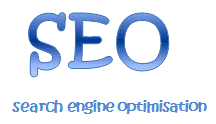I hope you find my writing and business tips and observations useful. My business and blog are dedicated to helping businesses communicate clearly and reach their potential.
Read, subscribe to my newsletter, enjoy!Tash
Is your website shallow?
What is the content like on your website?
A new term around at the moment refers to shallow website content, meaning content that meets any minimum expectation without any additional information or resources.
Consider the contact us page on most sites – there is very little content other than contact details. That is shallow content – although highly appropriate for a contact page!
Imagine that level of information on other pages of a site – for example, I followed a tweeted link today to a blog post that was purely a title and a link. It can be very frustrating for a person wanting to learn something if a page gives so little information, but shallow content has worked in the past for getting search engine results.
One of Google’s plans, apparently, is to make information-rich pages rank better than such shallow pages. I say bring it on!
So before Google makes that change, maybe now is the time to build up the content on your website. Even adding depth to one page a week or fortnight will improve the experience for your site visitors, so what have you got to lose?
So, is your website shallow? Are there obvious questions people would have that you are not answering?
Making web content attractive
As you work on your website, there are some key activities to making the site more attractive (and therefore effective) for both humans and search engines.
Of course the key feature of a successful website is providing useful information – great navigation and design won’t do much if the content is lacking – but the following activities will make the content more accessible.
1. write for websites
Website content is not the same as content you would write in a letter or a printed brochure. Our eyes work slightly differently on a screen compared to a page and people have different expectations so web content needs to be short and start with the most important information.
Website content also has the advantage of hyperlinks so it is easier to refer to other information directly, including defining words and terms away from the main content.
2. utilise keywords and phrases (we’ll cover this further in this series, too)
A keyword or phrase is what people and search engines look for to judge if a web page is relevant; so keywords for this blog post could be web content, content, website, effective and SEO.
In general, the more you use a keyword, the more your page will get noticed in relevant searches so it is important to know your keywords and put them into your content. However, you need to balance adding keywords with readability of the content.
3. tell people about your site (check on Friday for the next post in our series for ideas)
The best website in the world won’t bring in business if no one knows about it so get the message out there! Whether it’s telling your friends or paying for a TV ad, or a multitude of options in between, you need an ongoing process of telling people your website exists.
4. keep the site fresh and current
Websites need to be updated and changed – you can’t just make it great and then leave it for years. While some content really doesn’t need regular updates (there’s only so many ways you can write “our phone number is 1234”!), frequently adding new content to your site gives people a reason to come back and makes it more attractive to search engines.
Some ways to keep your site fresh and current are to avoid unnecessary dates, removing old dates (e.g. for events in the past), add a blog or a feed (whether from a RSS feed or social media) and to add new portfolio items and testimonials.
5. link to related information
There are two main reasons to add links throughout your website content. Firstly, it can make things easier for your site visitors as they can find related information very easily. Being easy for your visitors gives them a good feeling about you and also means you can lead them along various steps to your action points.
Separately, search engines use links as part of their formulae in ranking your site against similar ones, so having more links to your web pages can help your search engine results – even links from your own site count.
This post is part of Word Constructions’ Setting up a website series
1. having a website helps more than you
2. what’s involved in setting up a website?
3. Learn about web hosting
4. Preparing your initial website content
5. Managing website design 101
6. Choosing a web designer
7. Basic web pages
8. Navigating your site
Influencing search engine results
Having a website is of little business value unless it is getting seen by people, and preferably the type of people will buy your goods or service.
The March survey of small businesses showed that about two-thirds believe search engines is the key means of finding new customers. Now that may be more or less applicable in your industry or in Australia vs the USA (the survey was in the USA only), but search engines do account for a reasonable amount of website traffic.
Which means that making your website as attractive as possible to search engines is important. You can pay SEO (search engine optimisation is the term for making your site perform better in search engine formulae) or marketing companies to improve your site rankings, but there are also things you can do quite simply. In fact, I’d say some of the simple tasks should be done even if you are paying someone else to help you with SEO.
Here is a quick list of the easy SEO tasks you can do to increase your chances of being found in relevant searches:
 use relevant keywords in your web and blog content
use relevant keywords in your web and blog content- provide quality and relevant content on your site – a blog is excellent for this
- aim your web and blog content at humans – search engines are getting more sophisticated at picking out fake pages of keywords
- make your content web friendly – search engines read headings, too so make use of them
- add links to relevant information (on your site and elsewhere)
- encourage links to your site as much as possible without getting into link farms or spam
- ensure your web pages and blog posts have relevant meta data (background information about the page) – which means it shouldn’t the same for every page
- update your site and blog as often as you can to keep it fresh and give people a reason to come back for more – fresh content and visitors both help your search engine rankings
rejecting SEO “offers”
I seem to be getting more emails about search engine optimisation (SEO) services lately – all of which I delete without any consideration I might add!
Why do I delete them?
- I don’t have time to read so many emails that are often copies of the same text
- I don’t trust services who need to spam me to get work – if their services are so great, they should be able to get work in less annoying ways
- no one can promise to get another site to to the top of Google – Google changes their system often enough that no one can hack it exactly for one thing, and it depends on what other sites are doing as well – if their site is improved, how do I stay as number 1?
- I am convinced that good content is a key to succeeding with search engines – the amount of site traffic I get from my articles is evidence of that – and I doubt an SEO company will help me with my content!
- I hate spam!
What worries me more is that some of them will convince other business people to take up their services. Not only would it be a waste of money most of the time, some SEO strategies can actually penalise your site (and if Google or Yahoo cuts you out, it is very hard to get your site recognised.)
So if you get made an offer to ‘put your site at the top of search engine listings’, please consider carefully if it is worth pursuing. In fact, if they convince you of the need to have SEO help, go online to find a company to use instead of trusting an uncalled for solicitation. Finding a company gives you the chance to decide how reputable they appear.
Alternatively, take some time to work on your content to make it useful and relevant for humans and read up on other ways to help your page rankings.
New listing
I have just added this blog to a directory (the suitably named Web Link Directory!) I came across while researching things online for a client.
What directories have you added your business to? Have you noticed any significant results (positive or negative) from any directory listing?
Admittedly, I did a lot more in the way of directory listings when I first started in business and needed some exposure to get started. I’m not sure I ever got any work from those ads, but I believe they may well have helped get my site noticed by Google and friends. Of course, having relevant, human-orientated content made more difference to my eventual rankings but some initial incoming links helped.
Now, I have less time to look for directories! But more importantly, I take more care in choosing where to place links – relevant sites and sites I consider to be reputable are much more likely to get my notice. Many experts say these links will benefit me more than lots of suspect links, and I don’t disagree with them; besides, I think they are more likely to attract the types of clients I want.




Recent Comments